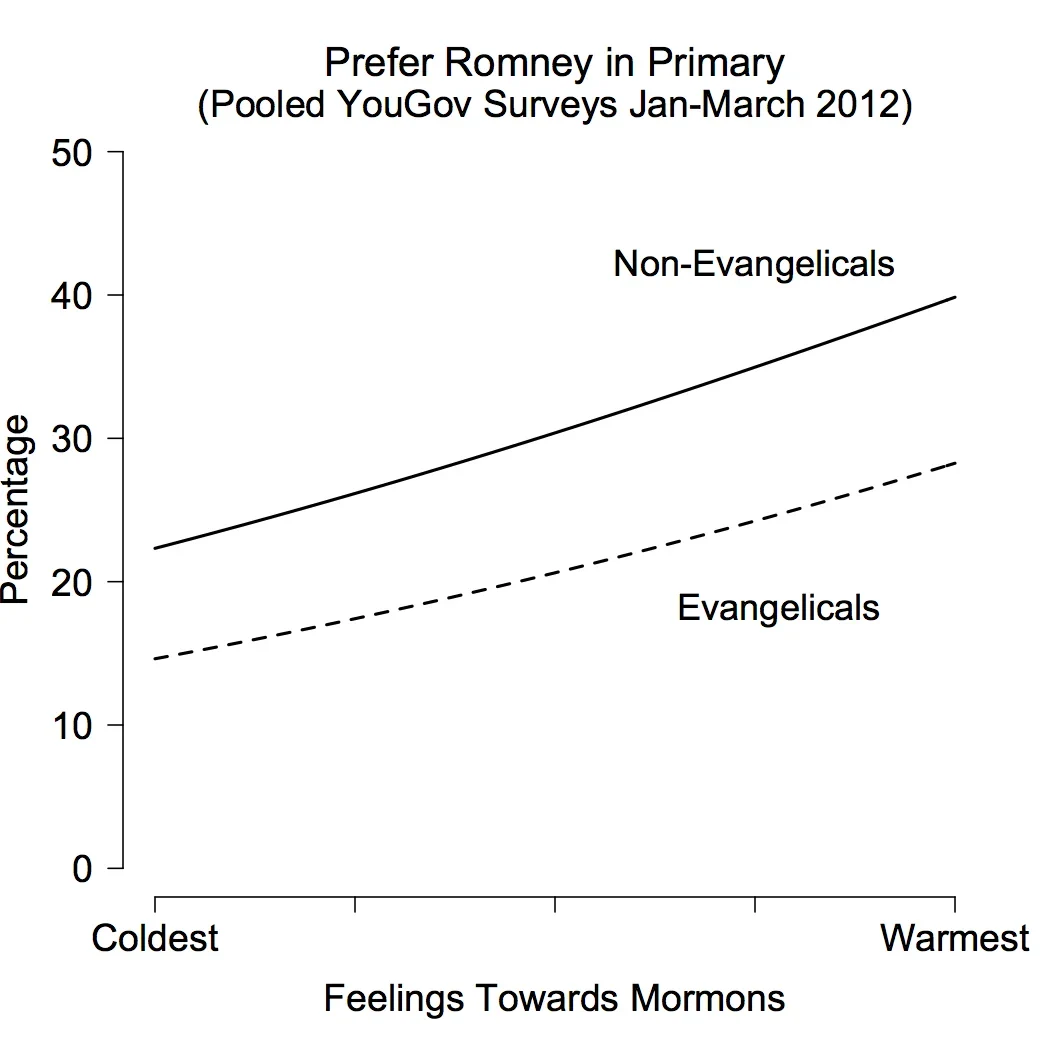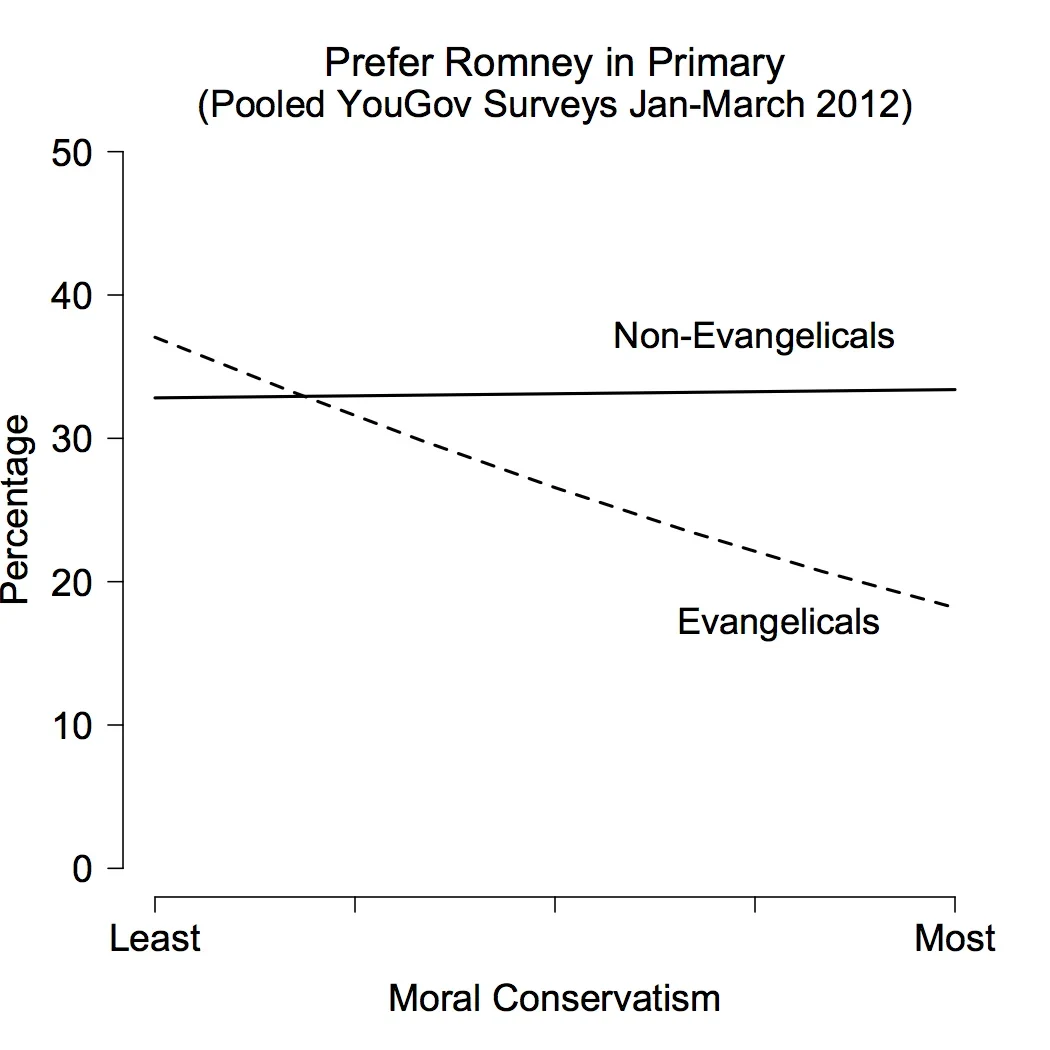Media speculation abounds that Mitt Romney’s poor performance among Evangelical voters in the 2012 Primaries is rooted in anti-Mormonism—a sentiment that will surely intensify if the former governor loses this week in Alabama and Mississippi. My analysis of seven surveys conducted by YouGov from late January to early March 2012 (pooled n=7,000, with 1,791 likely Republican primary voters), however, suggests that Romney’s religion is not the main reason why he has not won over these voters.
For starters, the data disclose that Evangelical Republicans do not feel that much colder towards Mormons than their fellow partisans. Non-Evangelical primary voters who were interviewed over this six week time period, for instance, gave Mormons an average rating of 66 on a 0-100 thermometer scale compared to a score of 61 for Evangelical Republican voters. To be sure, that 5 point difference between groups is statistically significant (p<.001); yet, it is also less pronounced than one might expect given the ubiquitous claims of anti-Mormon prejudice among Evangelicals in the news media.
Even more important for our present purposes, Evangelical primary voters are no more likely to rely on attitudes towards Mormons in formulating their 2012 choices than their non-Evangelical counterparts. Indeed, the figure below indicates that feelings about Mormons have nearly the exact same influence on Evangelicals’ votes for Romney as they have among the remainder of the primary electorate.

Why, then, has Romney underperformed among this group throughout the primary season? The answer most likely resides in moral issues like abortion and gay marriage. For, unlike attitudes about Mormons, Evangelical Republicans are much more conservative on these issues than their fellow partisans. Moreover, and also unlike anti-Mormonism, Evangelicals are more likely to vote in the primaries based upon moral issues than other Republicans. The figure below, for instance, shows that moral conservatism—measured here by attitudes about abortion and gay marriage—significantly eroded Evangelical support for Romney between January and March, while having no influence whatsoever among non-Evangelicals.

All told, then, the evidence suggests that Evangelical opposition to Mitt Romney’s bid for the GOP nomination is rooted in perceptions that he is not sufficiently conservative on social issues, rather than in aversion to his religious faith.









